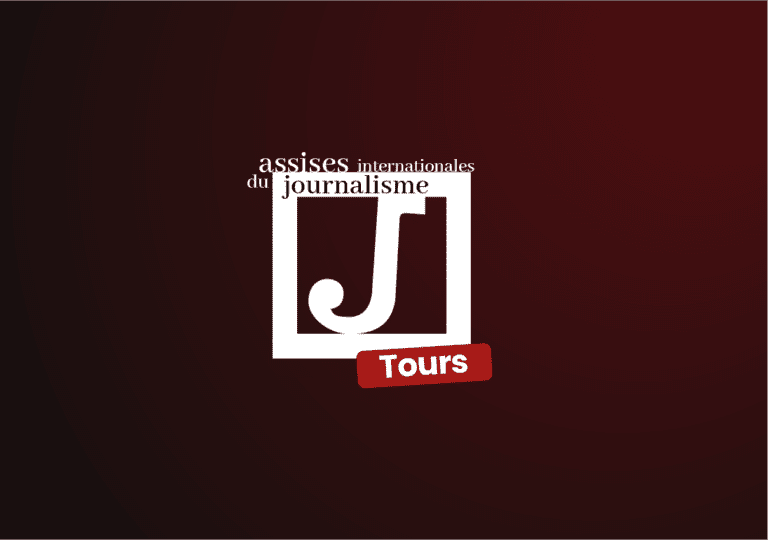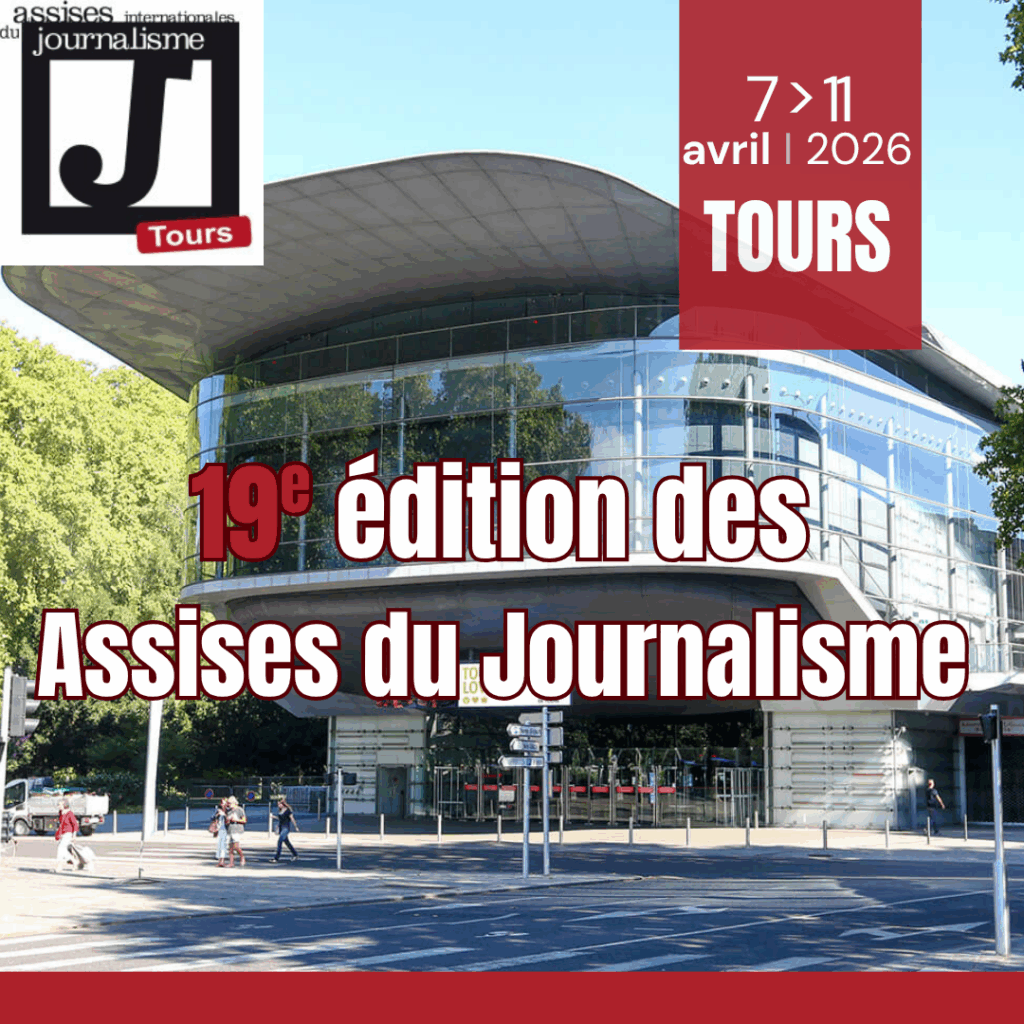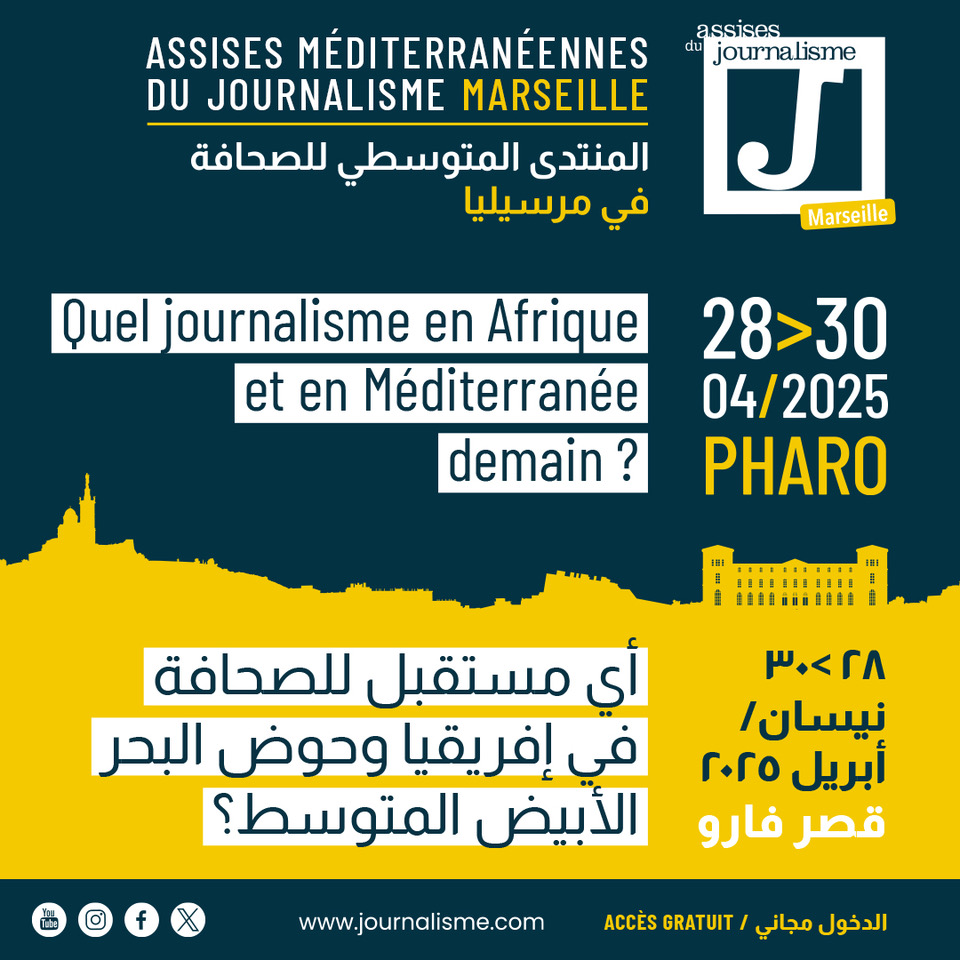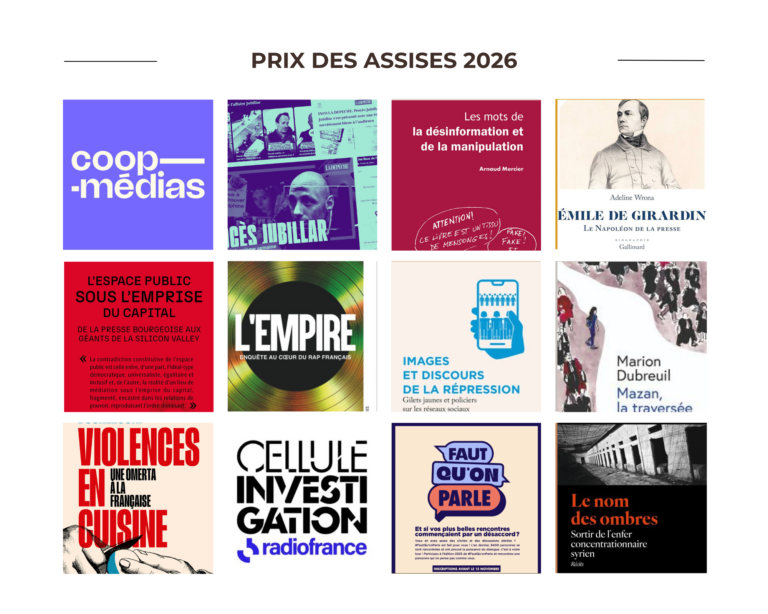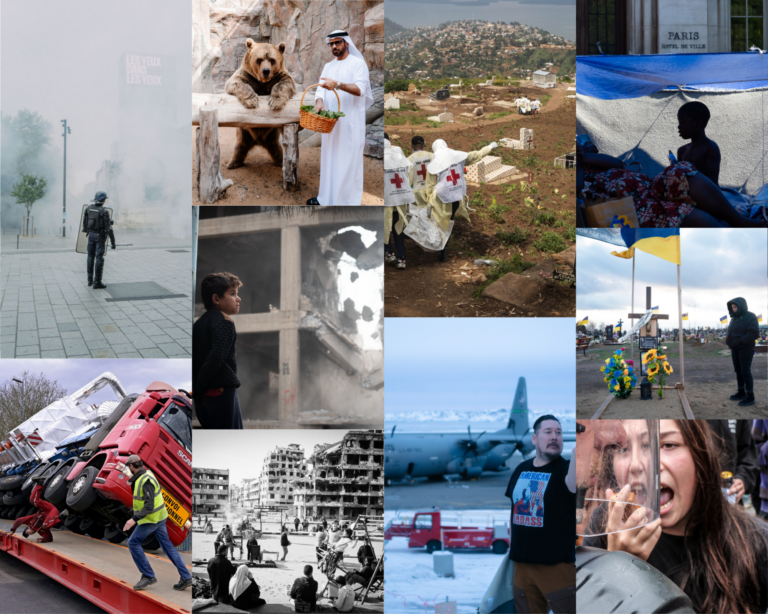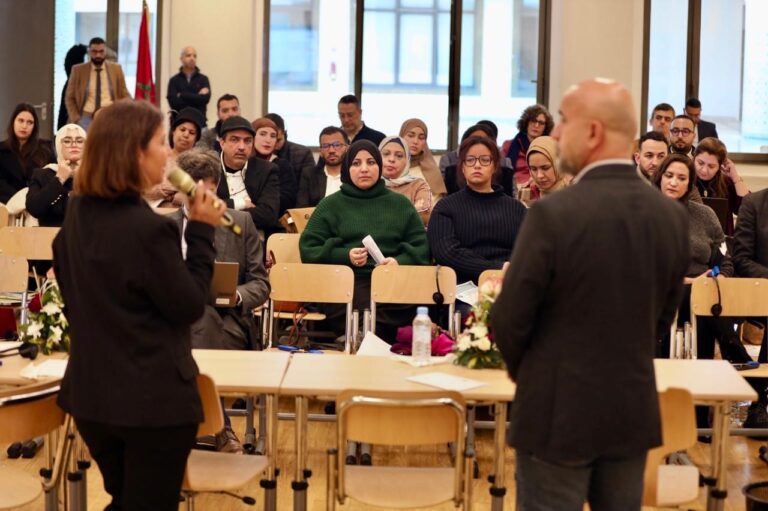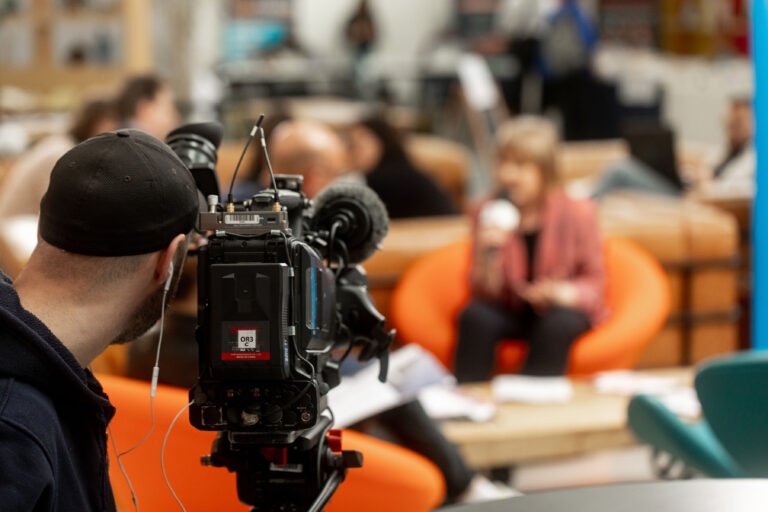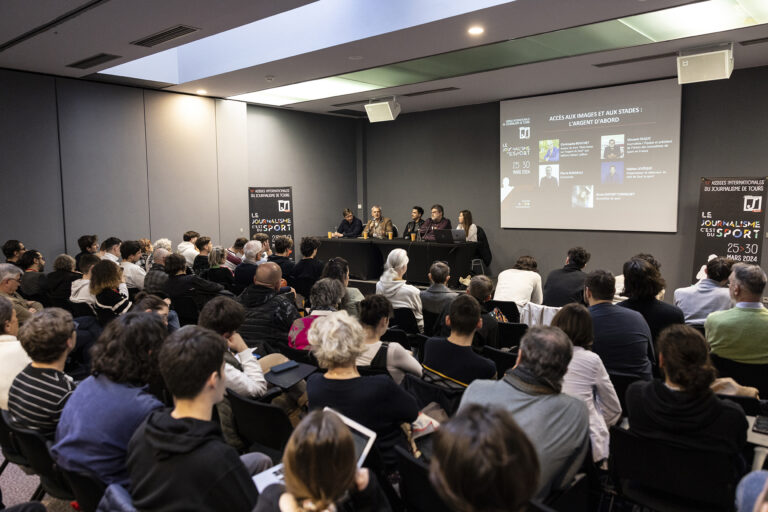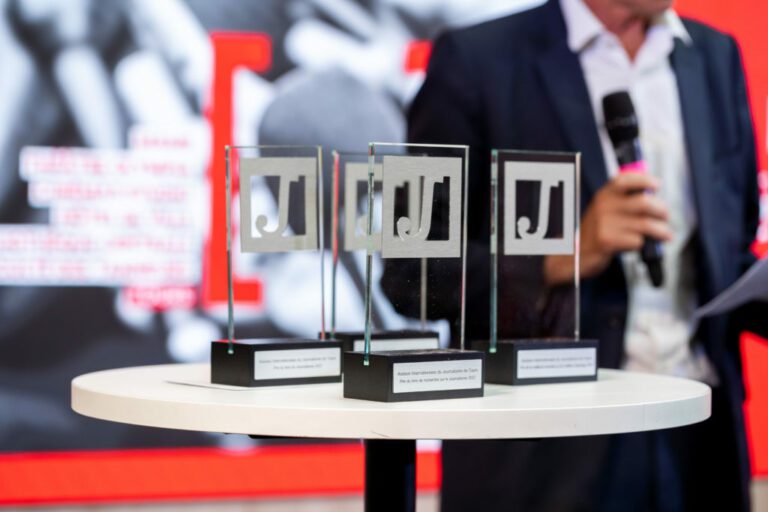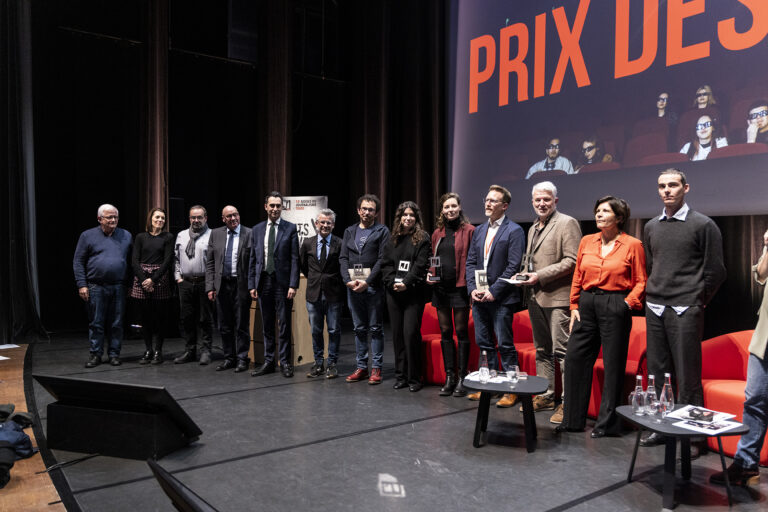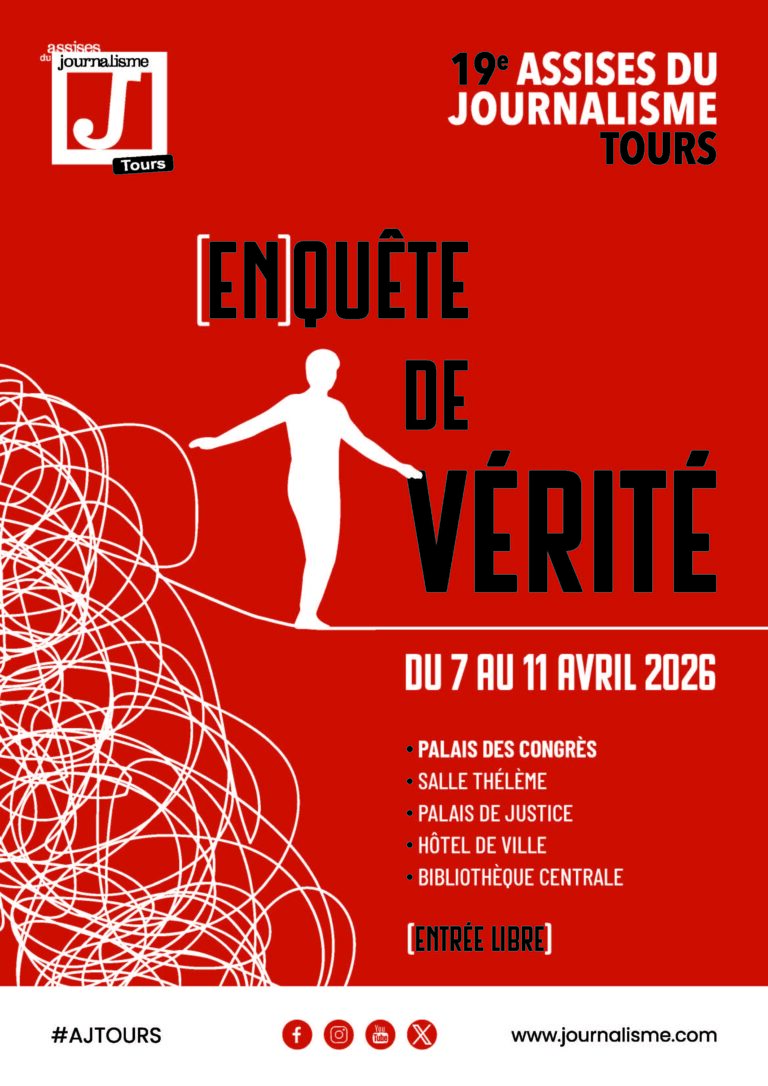Training workshops / 9:30 am – 12:30 am
TUESDAY 16th NOVEMBER
New practices:
Moderators / Social media administrators: work for journalists?
On the Web, editorial staff members discuss with their audience. Should the administration of those online social media be taken charge of by dedicated professionals? What should their competences be? How can journalists themselves be committed to coordinating the reactions their articles generate (conversational journalism)?
Journalism:
The AFP (French Press Agency) sifted through
At the core of the debate concerning the first French Agency’s mission, editors and journalists discuss their expectations.
Ethics:
Households, partnerships, and editorial quality…
From penniless journalism to errant journalism, is it possible to directly analyse the role of households in the practice of journalism? Should they be controlled? How?
Cultural or sports events, humanitarian action: partnerships are at the core of media life. How can a policy promoting partnerships and the retention of editorial quality be reconciled?
Training / Research:
Should journalists be trained in Personal branding?
How can a digital identity be built up through blogs and social networks?
Does a journalist with a 2.0 certification stand a better chance than others?
Does assuming the subjectivity of one’s view help to win back the public’s trust?
What kind of juridical statutes and what kind of independence for the “I” journalism?
WEDNESDAY 17th NOVEMBER
New practices:
Getting information via social networks
Ex-post editing, credibility, trust: what can social networks take advantage of to be selective as to the information that we need? How should a network be built up for optimal access to information? How should information received be handled?
Journalism:
They have created their own media.
Radio, Web, TV, newspapers: four teams of “businessmen journalists” tell us of their difficulties and their successes.
Ethics:
How real are news pictures today?
Due to the press crisis, NGO’s and advertisement have become producers of photo stories. Lacking funding, the press recycles corporate pictures to illustrate articles. On each side, photoshopping seems to have become compulsory… In order to maintain the readers’ trust, wouldn’t it be time to go back to some rules?
Training / Research:
The transmission of journalism
Section editor, chief editor, director of human resources: how can the basics of a changing profession be transmitted to a generation of journalists whose skills are different from those of their predecessors’? How can young journalists be trained? How can the editorial values of a newspaper be transmitted to newcomers without brainwashing them?
THURSDAY 18th NOVEMBER
New practices:
Phones and tablets: the upcoming reign of mobile info
Will the arrival of new mobile devices allow us to return to paying for content? In which way is mobile info going to lead us to formats of specific contents? Does mobile info bring about the risk that journalists will be less mobile?
Journalism:
Freelance journalists: should we question the method of payment?
Some companies offer to pay freelance journalists under the law of copyright or French “auto-entreprise”. Is this the premises of a degradation of the working conditions and pay of freelance journalists? On the other hand, does it mean more possibilities and freedom?
Ethics:
They work as journalists in “suburbs”.
The way the media deals with information about the suburbs was subject to a lot of criticism. Have journalists who work in the suburbs been able to create new ways of presenting information and getting targeted parts of the population involved?
Training / Research:
Meeting with the “Research Committee of the Conference on Journalism”
The Research Committee brings together the 18 experts who are committed in the field of journalistic practices, either being historians, sociologists, lawyers or political scientists.
During the workshop, the Research Committee will present the conclusions of a preliminary 6-months work on journalists’ public.
Debates and Meetings / 2:00 pm – 4:00 pm
TUESDAY 16th NOVEMBER
Working as a journalist in Germany
Problematics and specificities of German journalism, in cooperation with the AJE (Association of European journalists).
WEDNESDAY 17th NOVEMBER
Sports journalism and the fight against discrimination
Racism, homophobia: sometimes, stadiums are the theatre of discriminatory acts. When facing verbal abuse, do journalists have the tools to raise people’s awareness?
The Press Council as if it would exist.
What if we had a real Press Council? In order to emerge from theoretical debates, the APCP (Association of Prefiguration of a Press Council) simulates three problems and gives its opinion about how to deal with information in 2010.
THURSDAY 18th NOVEMBER
Which rights for tomorrow’s freedoms?
On the 60th anniversary of the European Convention on human rights, the Conference on Journalism brings together all actors espousing freedom of expression and working towards the quality of information in Europe.
Recapitalizations in the French press and quality of information.
After so many buying and selling of daily newspapers, how will these capitalistic mutations influence the way information is made in France ?
Debates and Meetings / 5:00 pm – 7:00 pm
TUESDAY 16th NOVEMBER
Tribute to Iranian journalists
In politically troubled Iran, how is it possible to keep working as a journalist? From our point of view, what tools can we use to deal with current affairs in Iran from Europe?
Acting Public, Public Financing, Public Prescription: How about the public feeling responsible for the quality of their information?
After participative journalism, some citizens take over a failing economical model to become real sponsors for information. They contribute to the fabrication of information, and they influence the editorial orientation of a medium through mediation and online communities.
WEDNESDAY 17th NOVEMBER
Members of the Court: what they think about journalists.
After the elections in 2010, lawyers and members of the Court speak freely about their relationship with journalists.
Meeting with the nominees of the Conference on Journalism
Three awards are granted at the Conference on Journalism. The first two reward the book which discusses best journalism and its practice, one written by a journalist and the other by a researcher. The third one rewards the best media investigation.
THURSDAY 18th NOVEMBER
Against low cost Info, long live Slow Info!
Immersion journalism, investigative journalism: seeing the realities of low cost info, isn’t it time to claim the virtues of Slow Info?
Symposium / Wednesday / 9:30 am – 21:00 pm
Youth and information
How to get closer to them? How to speak about them? How do they get informed? What do they expect from information?
Symposium.
Evenings / 7:30 pm – 9:00 pm
The meeting “Crossroads of the Possible”
Presentation of the ten most innovative projects regarding practices in the field of information and communication technologies in France and Germany.
The Conference on Journalism’s evening
Prize giving of the Conference on Journalism award and the Partners award (ANACEJ, national association of children and youth councils).
Evening “Arte Reportage”, in cooperation with the Press Club of Strasbourg
Screening of documentary movies.

